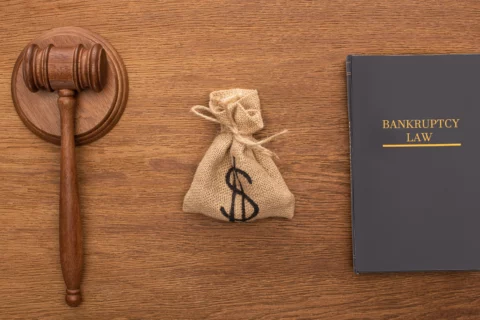Can You File For A Medical Bankruptcy?
Did you know that the average American household spends thousands of dollars annually per family member to cover the cost of healthcare? If you are facing high medical bills that remain unpaid for a time, you’re not the only one. Like you, others are looking into options to get out of their medical debt. This article presents the option of filing for bankruptcy as well as non-bankruptcy alternatives.
What is medical bankruptcy?
First of all, there are no medical bankruptcies. This means that you cannot file for bankruptcy just to target your unpaid medical bills. But filing bankruptcy can eliminate your medical debts, among other types of unsecured debts.
Bankruptcy laws don’t allow the filer to limit the case to a specific type of debt. When you submit a bankruptcy application, you will be asked to list all your debts, including your credit card balance, outstanding personal loans, utility bills, or borrowed money.
You are also obligated to declare your income, expenses, any personal property, or real estate owned. If you want to wipe out your healthcare debt, then you may also eliminate your other unsecured debt in the process.
When should I consider bankruptcy?
It is better to consider declaring bankruptcy early on before you find yourself facing a lawsuit from your medical provider for failing to pay what you owe. Legally, doctors can sue you and collect money if you fail to respond to their notices of late payment. This can lead to wage garnishment, where the court allows the healthcare provider to seize a portion of your monthly income directly from your employer.
 To avoid the worst-case scenario, explore your bankruptcy options today by setting an appointment with a bankruptcy attorney. Many debtors have put off this option in fear of endangering their relationships with their doctors.
To avoid the worst-case scenario, explore your bankruptcy options today by setting an appointment with a bankruptcy attorney. Many debtors have put off this option in fear of endangering their relationships with their doctors.
When your medical debt gets discharged, it can be difficult to go back to how you and your doctor or healthcare professional were before the court’s notice of discharge was released. But legally speaking, the hospital cannot refuse to give you medical treatment or emergency care if you are unable to pay.
How can bankruptcy cover medical bills?
Most people who are unable to pay off their medical debts file bankruptcy under the two most popular choices: a Chapter 13 or a Chapter 7 bankruptcy.
In Chapter 7 bankruptcy, you discharge most debts except for those that are nondischargeable. This includes unpaid income taxes, child support owed, or alimony. In exchange for discharging of debts, the filer gives up certain properties.
Will you lose all your assets? Absolutely not! Only non-exempt properties will be turned over to the bankruptcy trustee appointed by the court to handle your case. Each State has a list of properties exempted. Get legal help from a bankruptcy lawyer to explore these exemptions and the Chapter 7 bankruptcy process.
Before jumping into your bankruptcy application, you need to know that the bankruptcy code outlines several qualifications before one is allowed to use bankruptcy for debt management. Your income and expenses must pass what is called the “bankruptcy means test”.
If your income is higher than your state’s median income, then it might be better for you to consider a Chapter 13 bankruptcy. This type of bankruptcy does not require giving up your assets. Instead, you are given an extended period of three to five years to settle unpaid debts under a new agreement with lenders called the “repayment plan”.
The bankruptcy court looks into your debts and disposable income when determining your monthly payments. You will also need to go through a credit counseling course before filing for either of two types of bankruptcy.
Do I have alternatives?
If you’re trying to avoid bankruptcy, you may consider settlements and assistance programs.
Settlements. You may try negotiating with your creditor (hospital). Some patients can have a portion of the bill waived especially when it is for an uninsured medical cost. You’ll need to first check with your insurance provider to know how much of the bill is covered.
Hospital Programs. Some hospitals have their program to assist patients especially those with low income. Depending on your area of residence, the Hospital Care Assurance Program may cover medically necessary procedures. You will need to check with the hospital to know if they have such assistance in place.
If these alternatives don’t match your circumstances, then a bankruptcy application can be your best shot to stop those medical bills from piling up. Start preparing for your bankruptcy petition today. Work with our experienced bankruptcy attorneys at Cutler & Associates, Ltd.
Schedule a consultation with one of our bankruptcy lawyers by calling us at 847-282-4899. Be one of the families from Chicago, Schaumburg, Oakbrook, and the surrounding areas who found debt relief through our bankruptcy law firm–not just for hospital bills, but also for other kinds of debt.


